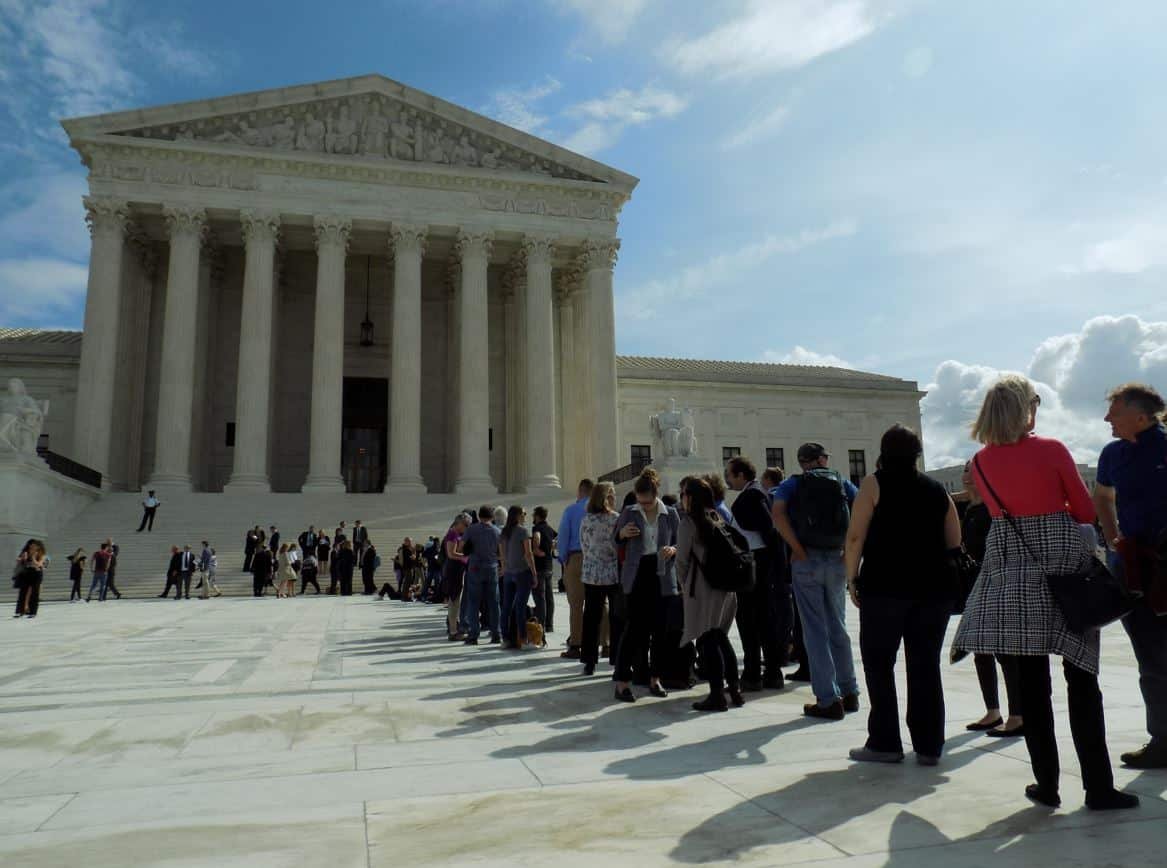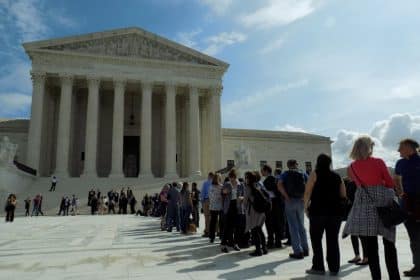Supreme Court to Determine Scope of Congress’ Taxing Authority

WASHINGTON — The Supreme Court on Monday agreed to hear a challenge to a provision of the Trump-era Tax Cuts and Jobs Act that could dramatically alter the taxing powers of Congress.
As is their custom, the justices did not explain their rationale for taking up Moore v. United States next term, but it already is promising to be one of the most closely watched cases of the 2023-2024 session of the court.
Depending on what the court decides, it could result in hundreds of billions of dollars in tax refunds for large corporations, and effectively block anticipated Democratic proposals to tax wealthy Americans before they even get out of the gate.
Prior to President Trump’s signing the 2017 Tax Cuts and Jobs Act, the U.S. taxed corporations and private citizens on income earned worldwide, but a provision of the tax code allowed corporations to defer taxes on their foreign income by holding their earnings indefinitely through a foreign subsidiary.
Under this scheme, a corporation would pay U.S. taxes on the foreign earnings only when they were “repatriated.”
Upon repatriation, the earnings would be subject to U.S. taxation at a rate up to 35%, with a credit for foreign taxes paid.
The 2017 change applied to 30 years of profits that U.S.-based companies held overseas and hadn’t repatriated.
The one-time tax, projected to raise $339 billion to help pay for rate cuts and other business-tax changes, was designed to smooth the transition to new tax rules that no longer allow companies to defer U.S. taxes on their foreign income.
It also applied to individuals who owned at least 10% of foreign companies.
The question the court will decide in the term that begins in October is whether people and companies have to receive, or realize, income for it to be taxed under the 16th Amendment.
The underlying case was filed by Charles and Kathleen Moore, a married couple from Washington state, who made a small investment in a friend’s India-based company.
The company, KisanKraft, supplies affordable power tools to small farmers in India with the aim of making their operations more productive. The Moore’s owned an 11% stake in the company when the 2017 law went into effect, but had never received any dividends from their investment.
Under the new law, U.S. citizens who hold more than a 10% stake in a foreign corporation are required to pay a tax on the revenue accumulated, regardless of whether that revenue was distributed.
Most tax policies require the citizen to have received dividends in order to be considered taxable income, but the 2017 tax change allows for the funds to become an unapportioned direct tax.
As a result, the Moores soon learned to their displeasure that they had a one-time tax of $14,729 to pay on their KisanKraft shares. Instead, they decided to sue, arguing that the tax was unconstitutional because their partial ownership of the company did not count as “income” under the 16th Amendment.
The district court agreed to dismiss the case on the grounds that the tax policy falls under the constitutional powers of Congress. The Moores appealed, but the 9th U.S. Circuit Court of Appeals affirmed the lower court’s decision, stating that “the Supreme Court has made clear that realization of income is not a constitutional requirement.”
However, not everyone on the 9th Circuit agreed.
After the Moores’ request for an en banc hearing of the full 9th Circuit was denied, U.S. Circuit Judge Patrick Bumatay wrote a dissent in which he said he would have granted reconsideration of their case on the grounds the circuit court had “become the first court in the country to state that an ‘income tax’ doesn’t require that a ‘taxpayer has realized income’ under the 16th Amendment.”
He also worried the decision would open the door to an expansion of federal taxing power “beyond the limits placed by the Constitution.”
Specifically, Bumatay said, the decision could allow Congress to assess taxes “on all sorts of wealth and property without the constitutional requirement of apportionment.”
In a petition filed in February requesting that the Supreme Court hear their case, the Moores relied heavily on Bumatay’s dissent, arguing that their situation presented “a question of exceptional importance concerning Congress’ taxing power.”
“Confronted with a novel new tax,” they wrote, “the 9th Circuit held for the first time ever that ‘realization of income is not a constitutional requirement’ for Congress to impose a tax exempt from apportionment under the 16th Amendment.
“On that basis, it concluded that there is no constitutional prohibition against Congress attributing a corporation’s income pro-rata to its shareholders’ and then taxing them on it, as happened here,” the Moores continued. “That decision shatters what had been an unbroken judicial consensus dating back to Eisner v. Macomber (1920), that the 16th Amendment’s exemption from apportionment is limited to taxes on realized gains.”
You can reach us at [email protected] and follow us on Facebook and Twitter
























